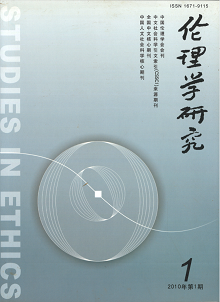|
|
Analysis of Morality and Virtue
TANG Dai-xing
2010(1):
6-12.
In ethics research,some fundamental problems are far from being consensuses,such as utilitarianism and deontology,responsibilities and obligations,norms and freedom,must and ought,heteronomy and autonomy,and so on.Ultimately,they come from the confusion of morality and virtue.Thus,it makes up the cognitive premise of ethics research to discriminate morality and virtue,and evaluate them correctly.Objectively,morals are heteronymous,which are the social norms that everyone should abide by.So,morals are utilitarian,which take self interests as the starting points,reciprocity of rights and responsibilities as the basic principle,and the reality of individual interest as the direct object.Morals are the fundament of virtues,while virtues are the sovereign of morals.So,virtues are autonomous,which means the social advocacy that everyone should respond to.Therefore,virtues are deontological,which take the abandon or surpassing of self-interests as the starting points,selfless altruism as the basic criterion,the fulfillment of obligations beyond responsibilities to promote others' interests as the realizing method,and the realizing of individualized personality and freedom of sprit as the direct goals.
|



